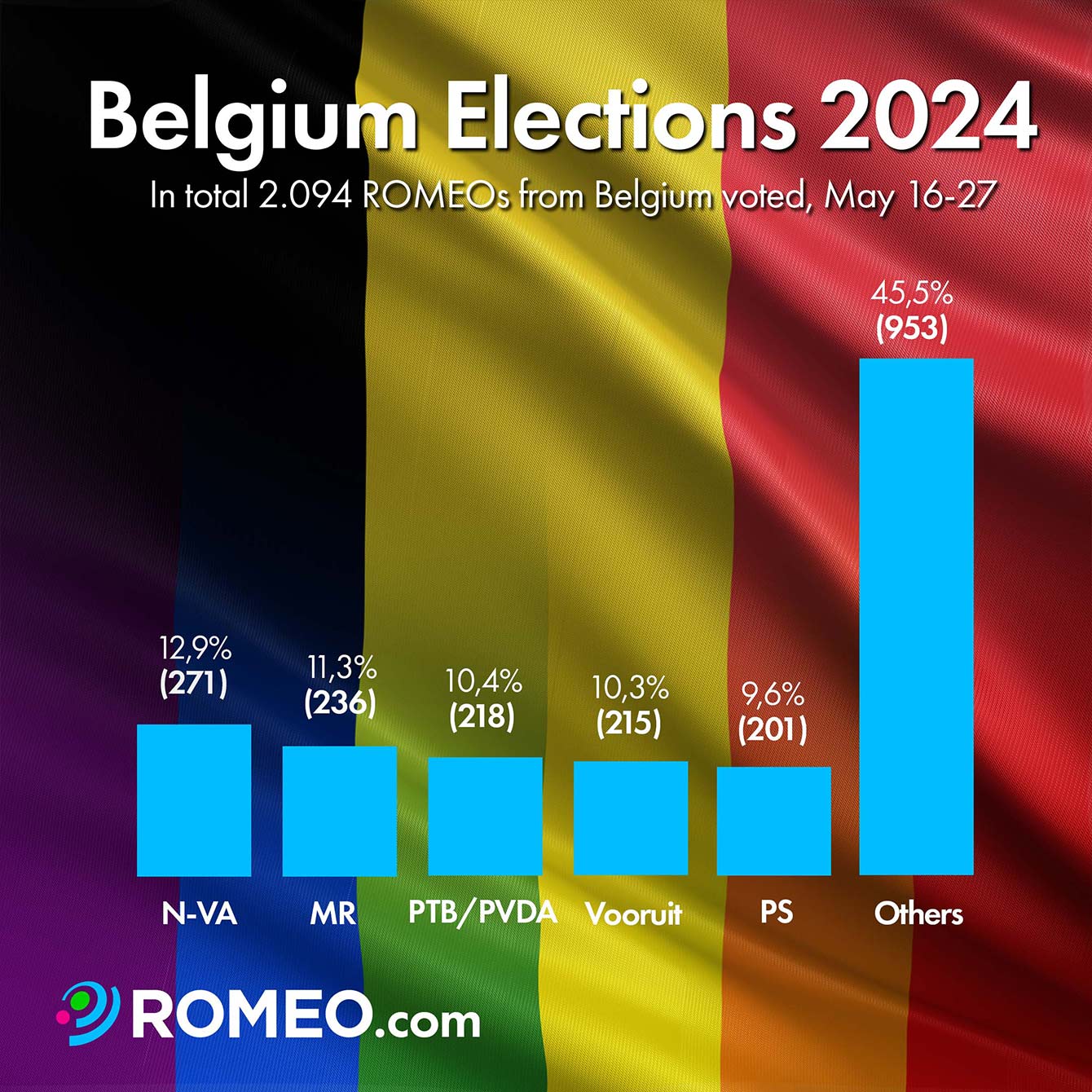2.094 ROMEOs from Belgium took part in the poll conducted from May 16th to 27th. Thanks to everyone who participated. Your voice matters!
Our ROMEOs voted as follows:
- 12,9% (271 votes) – New Flemish Alliance (N-VA)
- 11,3% (236 votes) – Mouvement Réformateur (MR)
- 10,4% (218 votes) – Partij van de Arbeid van België (PTB/PVDA)
- 10,3% (215 votes) – Vooruit
- 9,6% (201 votes) – Parti Socialiste (PS)
- 7,8% (164 votes) – Vlaams Belang
- 6,8% (142 votes) – Groen
- 6,5% (137 votes) – Open VLD
- 5,7% (120 votes) – Les Engagés
- 5,3% (111 votes) Ecolo
- 3,7% (77 votes) Christen-Democratisch en Vlaams (CD&V)
- 2,6% (55 votes) DéFI
- 7,0% (147 votes) – other

Follow us and share on Instagram or X.com.
Method & Limitations
Typically, electoral surveys don’t delve into questions of gender identity or sexual orientation. Consequently, there’s a lack of data regarding the voting preferences of the LGBTQ+ community.
We conduct polls during elections in countries where we have a substantial presence. Our aim is to give our users a voice and reduce this informational void.
We keep it simple, asking only about age and voting intentions. Our approach involves what’s known as a self-selecting sample – anyone interested can take part. We send an in-app message with participation links to all users in a given country. Participation is anonymous, and we don’t link responses to ROMEO profiles. While we don’t distribute the links elsewhere, we can’t rule out users doing so independently. Still, our survey partner is taking measures to prevent multiple simple submissions.
It’s crucial to stress that this method isn’t suitable for making statistically robust election predictions! Yet, thanks to our broad reach and participant numbers, we can at least gather data on the interests and preferences of the LGBTQ+ community. Additionally, it’s worth noting that the large group of lesbians isn’t represented on ROMEO.
Lastly, we ask for understanding that we don’t offer any interpretation of the results. We see ourselves as impartial ambassadors of our users and hope our data contributes to societal discourse, dismantles biases, and amplifies the LGBTQ+ voice in politics.

